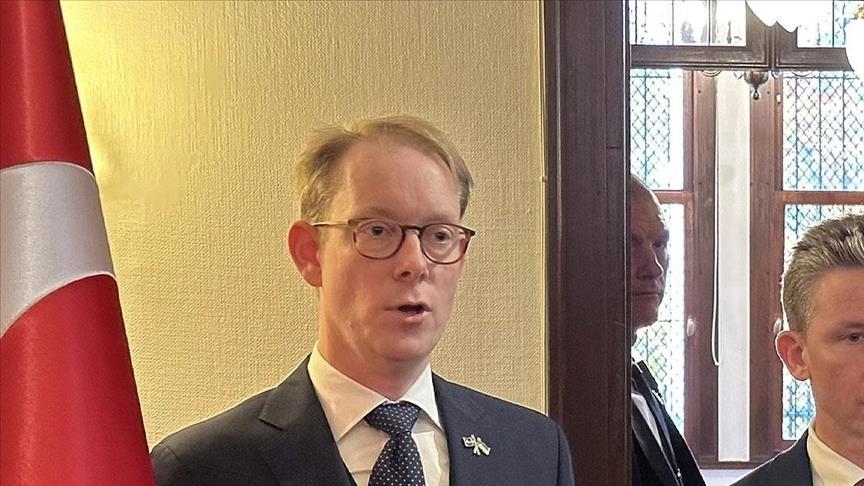
BRUSSELS
Sweden’s foreign minister on Monday reiterated that his government does not support the burning of holy scriptures but also claimed freedom of expression "makes it legal from a Swedish point of view."
"The Swedish government has been very clear that we both have freedom of expression in Sweden, but we also have made it very clear that we do not side with those people who have committed this," Tobias Billstrom said ahead of an EU foreign ministers meeting in Brussels.
On Saturday Rasmus Paludan, the leader of Denmark’s far-right Stram Kurs (Hard Line) Party, under police protection and with permission from the Swedish government, burned a copy of the Quran outside the Turkish Embassy in Stockholm.
"The Swedish government does not support the burning of holy scriptures of course in any way," Billstrom added.
Asked by Anadolu if burning the holy book of another faith would still be freedom of expression, Billstrom said that "is always an open question."
"Because I think it's important to emphasize that the freedom of expression makes it legal from a Swedish point of view, and from the point of the Swedish legislation to do this. But this doesn't mean that we have to side with this. The Swedish government does not do that," he added.
Global outrage
Condemnations have poured in from across the Arab and Islamic worlds over the Quran burning.
In response to Stockholm giving permission for the provocative act, Ankara summoned Swedish Ambassador Staffan Herrstrom and also canceled Swedish Defense Minister Pal Jonson's planned visit to Türkiye.
"At this point, Swedish Defense Minister Pal Jonson's visit to Türkiye on Jan. 27 has lost its significance and meaning, so we canceled the visit," Türkiye’s Defense Minister Hulusi Akar said Saturday.
Turkish Foreign Minister Mevlut Cavusoglu strongly criticized Sweden for giving permission to burn the Quran, stressing that racism and hate crimes do not count as freedom of thought.
Along with Türkiye, a host of other nations condemned the "vile attack," including Iraq, Somalia, Libya, Palestine, Lebanon, Algeria, Morocco, Yemen, the Turkish Republic of Northern Cyprus, Azerbaijan, Senegal, Saudi Arabia, Egypt, Qatar, Pakistan, the United Arab Emirates, Kuwait, Iran, Jordan, Morocco, and Afghanistan, as did many international organizations as well as the Organization of Islamic Cooperation.
Germany also condemned the provocation, with Foreign Ministry spokesman Christian Wagner telling reporters: "It was disrespectful and highly inappropriate and we also doubt that this action represents the view of the majority of Swedish society.”



